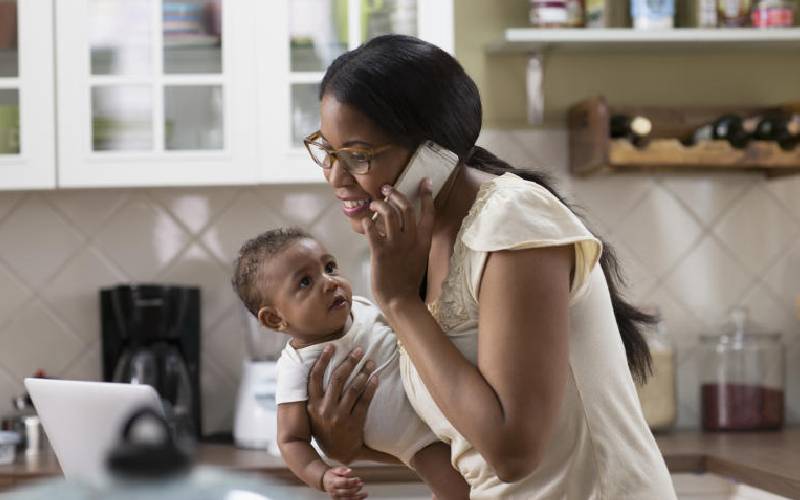×
The Standard e-Paper
Home To Bold Columnists

A woman takes care of her baby as she attends to office work.[Getty Images]
Two-thirds of people around the world want to work flexibly when the Covid-19 pandemic is over, a new survey shows.







